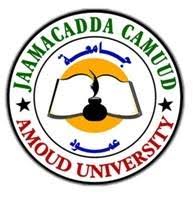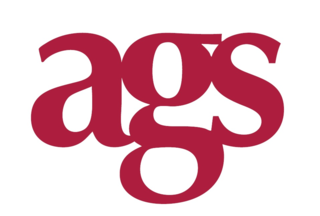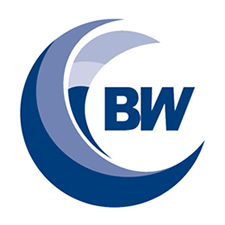
The General Certificate of Secondary Education (GCSE) is an academic qualification in a range of particular subjects, taken in England, Wales, and Northern Ireland. State schools in Scotland use the Scottish Qualifications Certificate instead. Private schools in Scotland may choose to use GCSEs from England.
The General Certificate of Education (GCE) is a subject-specific family of academic qualifications used in awarding bodies in England, Wales, Northern Ireland, Crown dependencies and a few Commonwealth countries. For some time, the Scottish education system has been different from those in the other countries of the United Kingdom.
Standard Grades were Scotland's educational qualifications for students aged around 14 to 16 years. Introduced in 1986, the Grades were replaced in 2013 with the Scottish Qualifications Authority's National exams in a major shake-up of Scotland's education system as part of the Scottish Credit and Qualifications Framework overhaul.

The International General Certificate of Secondary Education (IGCSE) is an English language based secondary qualification similar to the GCSE and is recognised in the United Kingdom as being equivalent to the GCSE for the purposes of recognising prior attainment. It was developed by Cambridge Assessment International Education. The examination boards Edexcel, Learning Resource Network (LRN), and Oxford AQA also offer their own versions of International GCSEs. Students normally begin studying the syllabus at the beginning of Year 10 and take the test at the end of Year 11. However, in some international schools, students can begin studying the syllabus at the beginning of Year 9 and take the test at the end of Year 10.
University admission or college admission is the process through which students enter tertiary education at universities and colleges. Systems vary widely from country to country, and sometimes from institution to institution.

The Gaokao, officially the Nationwide Unified Examination for Admissions to General Universities and Colleges (普通高等学校招生全国统一考试), is the national college admission exam of China, held in early June every year. It is required for undergraduate admissions at all higher education institutions in the country. The exam is usually taken by high school's graduating seniors at the end of their final year.

Kingsdale Foundation School (KFS) is a British mixed secondary school with academy status in West Dulwich, London, with an age range of 11–19 (Year 7 to sixth form). Admissions to the school are coordinated by the Southwark London Borough Council as part of the Pan London Admissions Arrangements. However, many students live in surrounding boroughs, such as Lambeth, Lewisham and Croydon.
Grade inflation is the awarding of higher grades than students deserve, which yields a higher average grade given to students.

Amoud University is a comprehensive public university, located in the city of Borama in Somaliland.

Alcester Grammar School (AGS) is a co-educational 11-18 maintained selective grammar school, situated in Alcester, Warwickshire, England. On 1 April 2011, Alcester Grammar School became the first school in south Warwickshire to achieve academy status.
Granville Academy, formerly Granville Sports College is a comprehensive school on Burton Road (A511) in Woodville, Derbyshire maintained by the Derbyshire County Council. It is part of the De Ferrers Trust.

Brooke Weston Academy is an Academy in Corby, Northamptonshire, United Kingdom, teaching pupils from ages 11 to 18. It has consistently placed very highly in GCSE league tables and has an above average value added score at Key Stage 4. The value added score for Key Stage 5 is below average nationally, but slightly higher than the Northamptonshire average. Attainment on entry is well above average and the proportions of pupils with learning difficulties and disabilities or eligible for free school meals are much lower than average.
The General Certificate of Education (GCE) Advanced Level, or A Level, is a main school leaving qualification in England, Wales, Northern Ireland, the Channel Islands and the Isle of Man. It is available as an alternative qualification in other countries.
The Lenham School is a coeducational secondary school and sixth form located in Lenham, Kent, England. It opened in 1952, as Swadelands School, and provides a secondary education for 788 boys and girls aged 11 to 18 years.

Education in Jersey is overseen by the Department for Children, Young People, Education and Skills. The Government is responsible for all Government-maintained schools on the island, including the Further Education College, Highlands College, as well as the fee-paying schools of Victoria College and Jersey College for Girls. There are also independent schools and religious schools, including De La Salle College, Beaulieu Convent School and St Michael's School.
A high school diploma is a diploma awarded upon graduation of high school. A high school diploma is awarded after completion of courses of studies lasting four years, typically from grade 9 to grade 12. It is the school leaving qualification in the United States and Canada.

The General Certificate of Education (GCE) Ordinary Level, also called the O-level or O level, was a subject-based academic qualification. Introduced in 1951 as a replacement for the 16+ School Certificate (SC), the O-level would act as a pathway to the new, more in-depth and academically rigorous A-level, in England, Wales and Northern Ireland. Later, the complementary and more vocational Certificate of Secondary Education (CSE) was added to broaden the subjects available and offer qualifications in non-academic subjects.
Haute Vallée School is a secondary school with 550 students owned and operated by the States of Jersey, and located in the parish of St Helier in Jersey.
St. Joseph's College is a boys' secondary school located in Enniskillen, County Fermanagh, Northern Ireland. It lies within the Western Education Authority area. The college is a member of the Fermanagh Learning Community with links to the South West College, Enniskillen.











